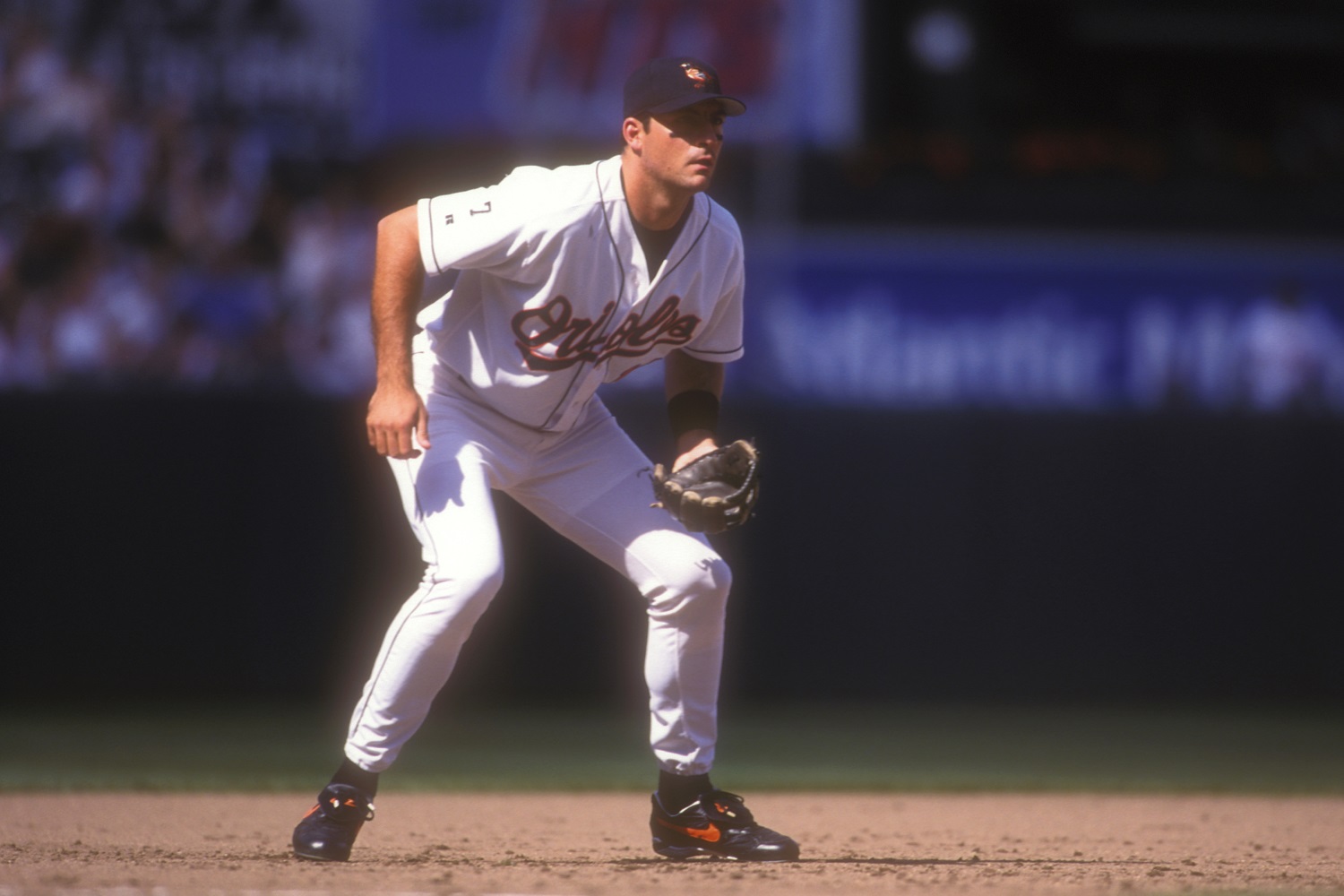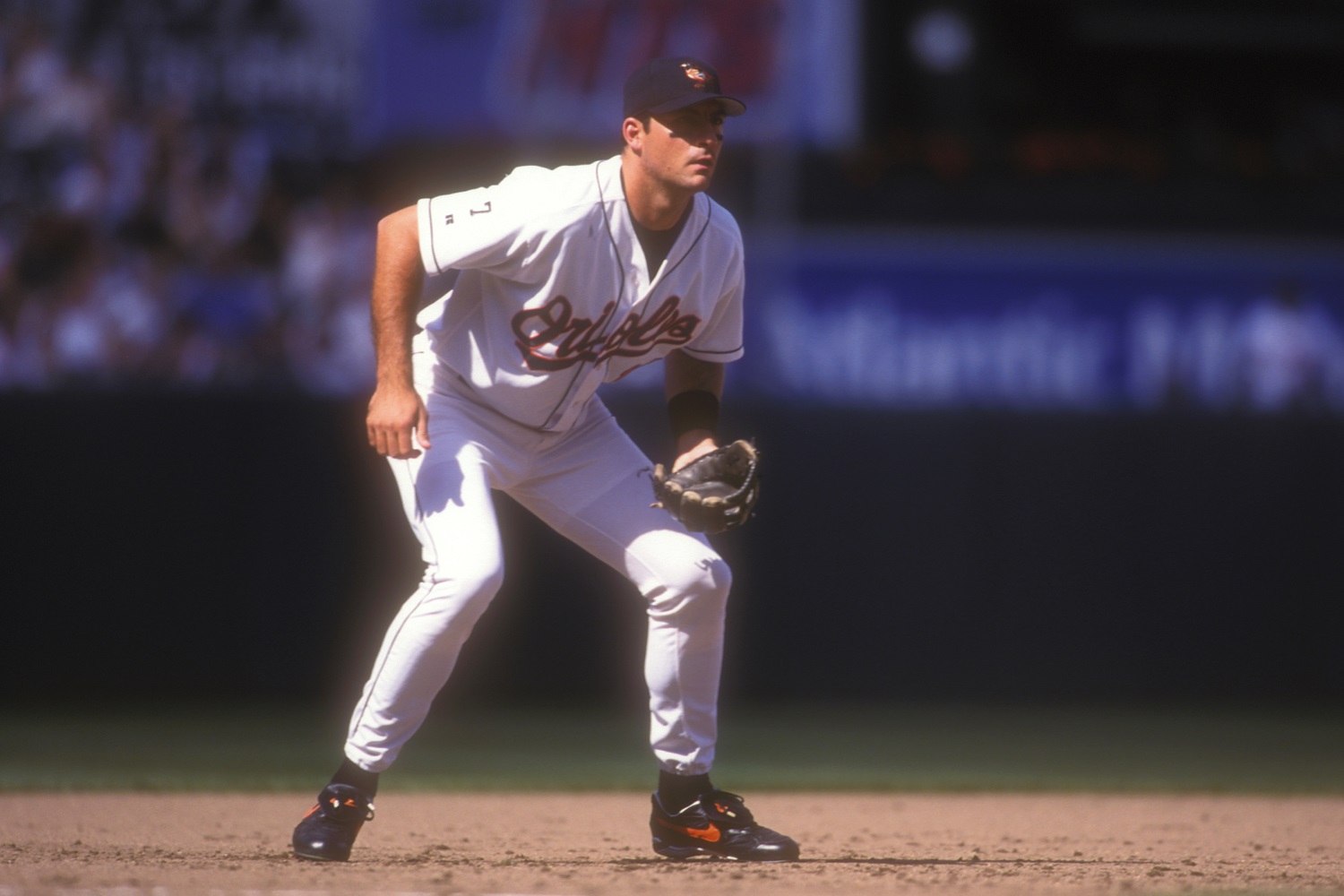MLB
What Ever Happened to Ryan Minor, the Man Who Replaced Cal Ripken Jr., Ending the Streak?

Just like this year, 1982’s Memorial Day weekend fell on the last three days of May with the Baltimore Orioles trying to overcome a slow start. On May 30 of that year, Earl Weaver wrote Cal Ripken Jr.’s name into the lineup. Managers and teammates came and went for the next 16 years, but Ripken remained the constant.
The future Hall of Famer played 2,632 consecutive games, surpassing Lou Gehrig’s ironman record. Finally, on Sept. 20, 1998, Ripken began a game on the Baltimore bench and stayed there for the duration of the game.
So, what ever happened to Ryan Minor, the man who replaced Ripken?
Ryan Minor was a two-career man in college

Minor was not born to replace Ripken at third base in Major League Baseball. If anything, at 6-foot-7, his destiny was to enjoy a solid NBA career.
Minor played four seasons of Division I basketball at Oklahoma, where he earned the Big 8 Player of the Year Award in his junior year. Had he played just a bit more as a freshman, Minor would have eclipsed 2,000 career points easily. In a draft class dripping with stars – Allen Iverson, Ray Allen, Kobe Bryant, Steve Nash, and Stephon Marbury – the Philadelphia 76ers made Minor the third pick of the second round in 1996.
Minor joined the Sooners’ baseball team at the conclusion of his first three college hoops seasons, establishing himself as a pro prospect on the diamond, too. In fact, the Orioles drafted him in the 33rd round weeks before the 76ers selected him. That year, he played 25 games for the Orioles’ Rookie League team in the Appalachian League and participated in the NBA’s summer league.
The 76ers made Minor’s decision on which way to go easier by cutting him, and baseball became his focus. In 1997, Minor batted .307 with 24 homers in Class A, impressive even for someone with a college baseball background. He would only hit in the .250 range the next two seasons while working his way through the season, but the power numbers remained solid.
In fact, Minor received “the call” late in the 1998 season and made his MLB debut on Sept. 13. A week later, he became the answer to a trivia question.
Ripken’s streak ended on Sept. 20, 1998
There was no World Series in 1994 because of a season-ending labor dispute between players and owners. One of the stories restoring interest in MLB in 1995 was Ripken’s pursuit of Gehrig’s record for consecutive games played. On Sept. 6, 1995, Ripken played in game No. 2,131, breaking a record that had stood since May 1939.
Ripken called an end to his streak a little more than three years later. On Sept. 20, 1998, at Camden Yards in Baltimore, he approached manager Ray Miller in the clubhouse and asked out of the lineup. Miller penciled in Minor to bat sixth and play shortstop.
The New York Yankees’ Chuck Knoblauch stepped to the plate to lead off the game. At that point, the Yankees saluted Ripken by stepping to the front of their dugout to bow toward Ripken in the Baltimore dugout and tip their caps. Suddenly, the home crowd realized what they were seeing – or not seeing: They were attending the game that ended the streak. A long ovation ensued, with Ripken taking curtain calls.
With Ripken on the bench, Minor went 1-for-4 at the plate and handled four chances in the field cleanly that night.
Minor couldn’t hit MLB pitching
Minor made six more appearances with the 1998 Orioles, but third base still belonged to Ripken. The Orioles assigned Minor to Rochester of the International League out of spring training the following year, and he earned his recall on July 17, 1999.
Unfortunately, hitting MLB pitching eluded Minor. He batted .194 with three home runs over 46 games that summer, then struggled even more with a .131 average in 32 games in 2000. After a 2-for-42 stretch to conclude his season, the Orioles traded Minor to the Montreal Expos for pitcher Jorge Julio, who went 17-34 in a nine-year career with eight teams.
Minor batted .158 in 55 games for Montreal in 2001 and never played in the majors again, bouncing around in the minors and independent leagues through 2005.
He later rejoined the game by coaching and managing in the minors, according to MLB.com. After the Orioles let him go following the 1999 season, Minor caught on working in player development for the Detroit Tigers.
All stats courtesy of Baseball Reference.
RELATED: How Did Cal Ripken Jr. Stay Healthy and Play Over 2000 Consecutive Games?











